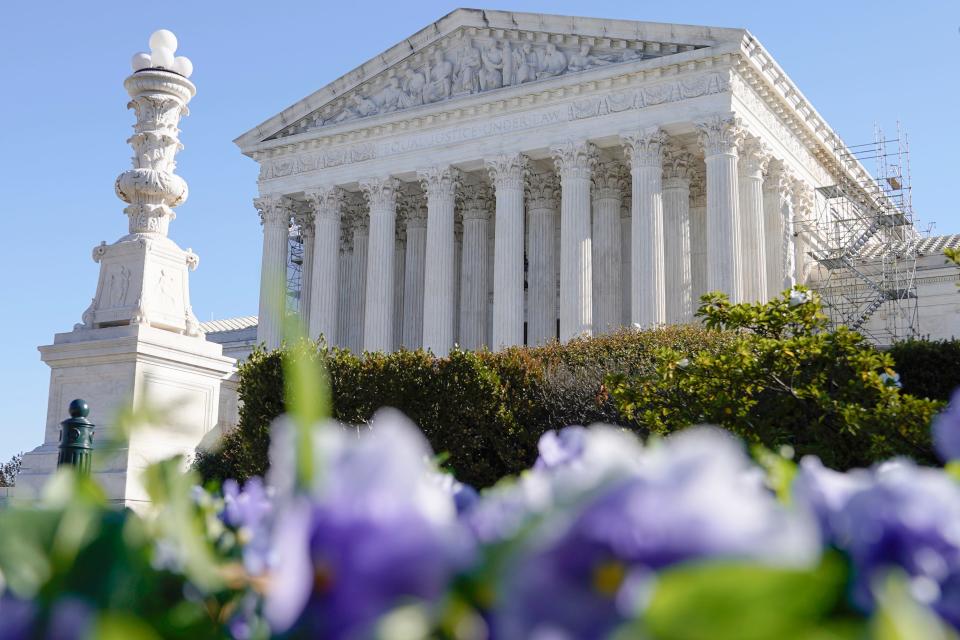States' rights vs. the Supremacy Clause: Here's what the Constitution says about them
Editor's note: This is a regular feature on issues related to the Constitution and civics education written by Paul G. Summers, retired judge and state attorney general.
The Rule of Law is the principle that all persons will be treated equally and justly in a civilized society. No man or woman is above the law.
The highest aspirations of the rule of law are established in the Declaration of Independence, the Constitution of the United States, and the Constitutions of the states.
They are the bedrocks of our constitutional republics. They structure government; allocate and establish power and authority; and provide for the three basic branches of government.
The constitutions provide freedoms and liberty. Because of our Founding Fathers, the United States is one of the oldest constitutional republics today.
Tennessee voices video podcast: 'Flaming Moderate' author Bo Roberts fights for democracy and honors Howard Baker's legacy
Supreme Court is the ultimate arbiter of constitutional questions
Article VI of the Constitution provides: “This Constitution, and the Laws of the United States which shall be made in Pursuance thereof; and all Treaties made, or which shall be made, under the Authority of the United States, shall be the supreme Law of the Land; and the Judges in every State shall be bound thereby, any Thing in the Constitution or Laws of any State to the Contrary notwithstanding.”

What the Article means is that our Constitution and Amendments are supreme and outrank any other provision. This is commonly called the Supremacy Clause. Our United States Supreme Court is the final decision-maker as to whether a federal law or regulation, a state constitution, or a state law is constitutional.
The Supreme Court receives from 7,000 to 10,000 applications to appeal annually. It grants less than 2% of those applications for permission to appeal. A majority of the nine justices makes the decision, especially if there is a conflict of decisions among the various circuits. We have had nine Justices on the Supreme Court for almost 155 years.
Hear more Tennessee Voices: Get the weekly opinion newsletter for insightful and thought provoking columns.
Here's what the 10th Amendment actually says
The Supremacy Clause means what it says: the federal constitution is the supreme law of the land. Regardless of laws passed by the Congress (federal laws or delegated, promulgated regulations), states’ constitutions, or state laws or regulations, the U. S. Constitution controls.
If another law or regulation conflicts with the federal constitution or lessens the rights or freedoms of a person guaranteed by the U. S. Constitution, it is void and unenforceable.
Put simply, such law or regulation is unconstitutional.
We all hear, especially now, about states’ rights, federalism, delegated powers, and federal vs. state jurisdiction.
Amendment X tells us how to solve this debate. It says: “The powers not delegated to the United States by the Constitution, nor prohibited by it to the States, are reserved to the States respectively, or to the people.”
If the Constitution does not delegate a power to the federal government, nor prohibit that power to the states, it is a reservation that is to be exercised by the state (and its subdivisions).
That is why the primary duty for the protection of the public and public safety is within the jurisdiction and duty of local officials.
Another view: History, runoffs and partisanship: Getting it right for Tennessee cities
Know the different between local, state and federal authority
Unless local officials, statewide or municipal, request federal assistance, the federal government’s responsibility is limited to federal property or personnel, except, of course, during wartime or an insurrection.
When a state cannot protect the public, its officials should ask the federal government for assistance.
We need to keep these basic principles in mind, especially during the political and national debates.
We must always first study the U. S. Constitution to determine what authority or power is delegated or prohibited. Such study is time well spent.
Paul G. Summers is a lawyer. He is a former appellate and senior judge, district attorney general, and the attorney general of Tennessee. Raised in Fayette County, Judge Summers lives in Nashville and Holladay
This article originally appeared on Nashville Tennessean: Constitution facts: What are the Supremacy Clause and states' rights?

